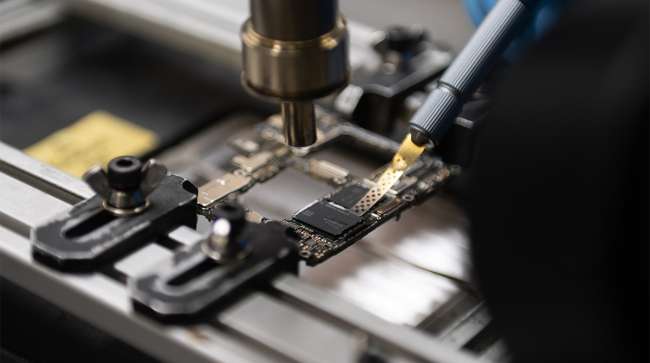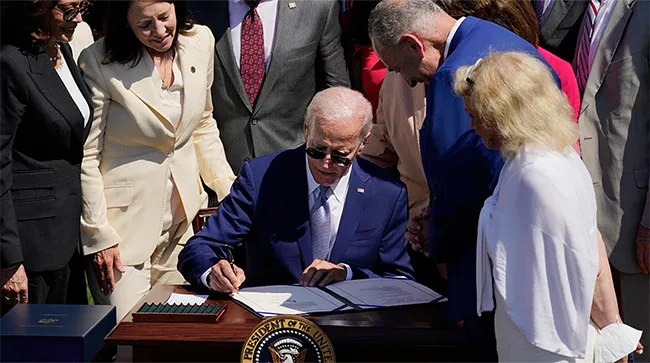Bloomberg News
Lawmakers Seek to Limit Chinese Influence on Chipmaking

[Stay on top of transportation news: Get TTNews in your inbox.]
U.S. lawmakers want to prevent companies that win federal chipmaking funds from using Chinese-made equipment at government-backed factories, part of efforts to limit Beijing’s influence on domestic chip production.
Under a bipartisan bill introduced June 18, companies such as Intel Corp. and Taiwan Semiconductor Manufacturing Co. would be barred from buying chipmaking gear from entities owned or controlled by China, as well as Russia, North Korea and Iran. The ban would apply only to U.S. facilities supported by funds from the 2022 CHIPS and Science Act, not to manufacturers’ overseas operations.
“As the United States revitalizes its domestic semiconductor manufacturing industry, we must do everything in our power to stop China and other foreign entities of concern from compromising our microchip manufacturing facilities,” Sen. Mark Kelly (D-Ariz.) said in a statement. Kelly is sponsoring the bill alongside Sen. Marsha Blackburn (R-Tenn.), while Reps. Frank Lucas (R-Okla.) and Zoe Lofgren (D-Calif.) are leading a companion measure in the House.
The CHIPS Act set aside $39 billion in grants — plus 25% tax credits, and loans and guarantees worth $75 billion — to revitalize the domestic industry after decades of production shifting to Asia. Companies responded by announcing more than $400 billion in U.S. semiconductor investments. And they’ve begun putting that money to work: Computer and electronics construction spending surged in 2024, reaching an annual pace that’s more than 20 times the pre-CHIPS Act average.

President Joe Biden signs into law the CHIPS and Science Act of 2022 at the White House on Aug. 9, 2022. (Carolyn Kaster/Associated Press)
Around 85% of the grant money is allocated, with most of it set aside for leading-edge projects by Intel, TSMC, Samsung Electronics Co. and Micron Technology Inc. Officials have unveiled several smaller preliminary awards in recent weeks, including the first for a supply chain project, and additional announcements are expected through the end of this year.
The U.S. program set off a global subsidy race, with governments from Brussels to Seoul fashioning their own programs to shore up domestic chip supplies. China, meanwhile, continues to build up its own industry. Last month, it unveiled the largest semiconductor investment fund in its history.
That $47.5 billion vehicle, known as Big Fund III, aims to support a stand-alone Chinese supply chain. The push includes fostering areas like chip equipment that are dominated by firms in the U.S., Japan and the Netherlands. It’s part of Beijing’s efforts to counteract years of U.S.-led export controls, which have cut off China’s access to cutting-edge chips and equipment from those three countries.
The U.S. lawmakers cited that fund — plus a reported push by Huawei Technologies Co. in equipment research — in the June 18 statement. They’re concerned about both cutting-edge gear and so-called legacy tools, which are used for production of less-advanced chips.
Already, CHIPS Act recipients are barred from substantially expanding their output in China or adding to their physical manufacturing space in the country.
Want more news? Listen to today's daily briefing above or go here for more info
“If left unchecked, Chinese state subsidies and aggressive market tactics could lead Chinese-made legacy tools to be placed in manufacturing facilities in the U.S. and allied nations in the future,” according to the statement.
Chinese equipment makers have made significant headway in the industry. They’re now offering tools to American companies, which are at least holding conversations about using the machinery, according to a person familiar with the matter. But the discussions may be more about gaining leverage in pricing conversations with American toolmakers Applied Materials Inc., Lam Research Corp. and KLA Corp., the person said.




